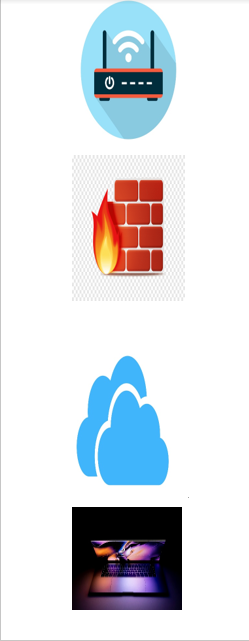
Cybercrimes have cost the world $2 trillion so far in 2019, according to recent research. Cybersecurity Ventures predicted in 2017 that damages would hit $6 trillion by 2021, prompting global spending of roughly $10 billion in cyber-security measures by 2027 to protect against these catastrophic losses.
But it is not just the big companies and organizations that get hit. Average, everyday consumers experience phishing schemes, ransomware attacks, identity theft, data breaches, and financial losses. For instance, it takes just five minutes to hack an internet-connected device, which includes your smartphone, smartwatch, on-board automobile computer, smart television, and home control systems, according to a Netscout report.
This means the more we rely on the internet, the more we need good cybersecurity in all its forms. But first, let us see what we are up against.
The Different Forms of Cybersecurity Threats
When it comes to infiltrating your system, hackers have an entire toolbox worth of tricks at their disposal. For instance:
Denial-of-service (DoS) Attacks
Hackers flood a network with requests to exhaust bandwidth. In many cases, DoS attacks are meant to be more of a nuisance than anything else.
Man-in-the-middle (MitM) Attack
This attack happens when hackers insert themselves into a two-party communication. Once they’re in, they can steal data.
Phishing Attacks
Phishing uses fake emails and text messages to get people to give hackers access to private information. It is one of the most regular attacks, especially against the general public.
Malware
This attack method is broken down into spyware, ransomware, worms, and viruses. Emails or downloads usually deliver these attacks from suspicious sites.
SQL Injection Attack
Hackers insert malicious code onto an SQL-using server, usually via a vulnerable website search box. Once carried out successfully, the attack lets the hacker see information otherwise kept off-limits.
Password Attack
Just what it sounds like. Hackers try to crack a password, usually a poorly chosen one and gain network entry.
What Does Good Cyber-Security Look Like?
Considering the dizzying number of cyber-attacks mentioned previously, you can see the importance of employing active cybersecurity measures. Fortunately, there are many useful cybersecurity methods that you can practice both at home and at work. Keep these in mind, and you will reduce the likelihood of having a cybercrime on your hands!
Practice Good Password Selection
Do you still have a “password” as your default password? If so, then shame on you! The ideal strong password is between 8 and 12 characters and includes upper and lower case letters, at least one number, and a unique character (such as !?, @). Do not use simple passwords, and do not use anything based on easy to find information about yourself.
Keep Your Wi-Fi Secure
Speaking of passwords, do not forget to protect your Wi-Fi network. Use WPA2 (Wi-Fi Protected Access version 2) for your security method.
Install Antivirus Software
Fortunately, many internet providers bundle in some halfway decent antivirus software with their service. If your provider does not, then pick up something from Norton, McAfee or Symantec; it’s not expensive, and it’ll pay for itself in the long run. Also, when you install the program, make sure it is running!
Avoid Suspicious Emails and Texts
Do not recognize the email address or the phone number of the text sender? Do not open it up, do not reply. Do not do anything other than deleting it! Many of these are the opening gambit in a phishing scam or identity theft attempt.
Use Firewalls and Encryption
Firewalls help regulate network traffic, both inbound and outbound. That includes blocking off certain sketchy websites. Encryption is essential if you are dealing with financial transactions, especially if you are a business owner. Encryption software scrambles the data so that even if the information falls in the wrong hands, it is useless unless the crooks also have access to the encryption key.
Do not Lose Track of Mobile Devices
One of the easiest yet most successful ways for hackers to get into your network is to just physically grab your laptop, tablet, or smartphone and log in. That is why you should always make sure your devices never leave your sight when you go out. Never leave them unattended in public or alone with people you do not know or trust. Furthermore, do not forget to lock them with strong passwords!
Practice Good Bluetooth and GPS Usage
Hackers can penetrate your system by using your GPS or Bluetooth connection. Your GPS lets people know where you are, so turn it off if you do not need it. The same goes for Bluetooth; hackers can use it to gain access to your phone.
Take Courses Related to Cyber-Security
The more you know about cybersecurity, the more secure you can make your network, and the greater the peace of mind you will have. There are a host of online courses you can take to become better informed.
References: John Terra
